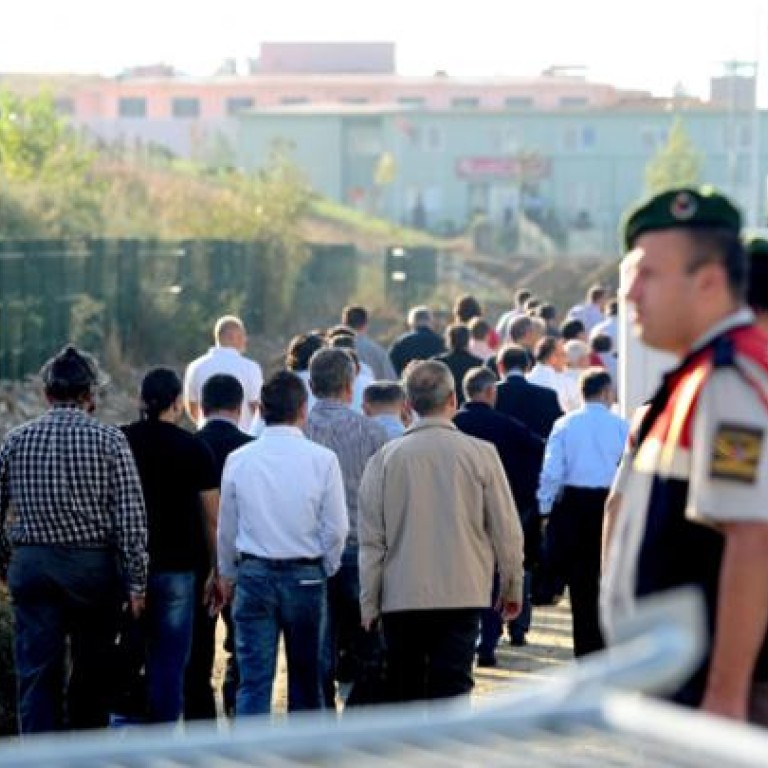
Turkey military coup plot verdict due
A Turkish court will hand down the verdict on Friday in the trial of hundreds of military officers accused of plotting to overthrow the Islamic-rooted government, the first ruling from several cases targeting the army.
The two-year-long case is wrapping up at the court in Silivri, near Istanbul, which heard on Thursday the final testimonies of the suspects in the so-called “Sledgehammer” trial, named after a 2003 military exercise.
Prosecutors have demanded up to 20 years in prison for the 365 military officers in the case, which concerns alleged army plans to bomb historic mosques in Istanbul and spark conflict with neighbouring Greece to facilitate a military coup.
The defendants argued that the alleged plot was a military exercise regularly held by the army, and questioned the authenticity of some documents presented as evidence.
The court announced that it would deliver the final verdict on Friday afternoon, the first ruling to come out of a series of trials into alleged coup plots by the once-mighty Turkish army.
The trial, which began in December 2010, stands out in Turkish politics because it directly attacks the secular army, which authored four coups in half a century.
At Thursday’s hearing, the judge listened to the defence of Cetin Dogan, former commander of the First Army and suspected of being the “mastermind” behind the 2003 plan to drive the ruling Justice and Development Party (AKP) from power.
“Here we see a process unfolding to make the soldiers of Mustafa Kemal (Ataturk, the founder of modern Turkey), who give their lives for their country, to pay the price of their commitment to the Republic and its principles,” said the ex-general, according to the written transcript of his defence.
Dogan branded the trial as “unfair and unlawful”, claiming it had been launched by supporters with “a mentality considering all those who do not belong to their brotherhood as enemies”.
His remarks will likely be seen as an implicit reference to the AKP government and the influence on the judiciary of Islamic cleric Fethullah Gulen’s religious movement.
Around 250 of the defendants are standing trial under arrest.
All the defendants have denied the charges and branded evidence as fabricated. Their lawyers were absent from the courtroom in a protest against what they dubbed a lack of willingness on the part of the court to verify the authenticity of documents presented.
“The verdict given will not be lawful but political,” said General Bilgin Balanli, as he claimed that the accused were “the mere victims” of a showdown between the government and the army.
Hundreds of suspects, including army officers, journalists and lawmakers, are being tried separately over their alleged role in plotting to topple the Islamic-rooted government.
Pro-government circles have praised the trial as a step toward democracy, but pro-secular ones have branded it a witch-hunt to silence opposition.
The Turkish army, which sees itself as the guarantor of Turkey’s secular principles, overthrew three governments in 1960, 1971 and 1980.
And in 1997, it pressured an Islamic-leaning prime minister, Necmettin Erbakan, to step down. Erbakan was the political mentor of current Prime Minister Recep Tayyip Erdogan.
